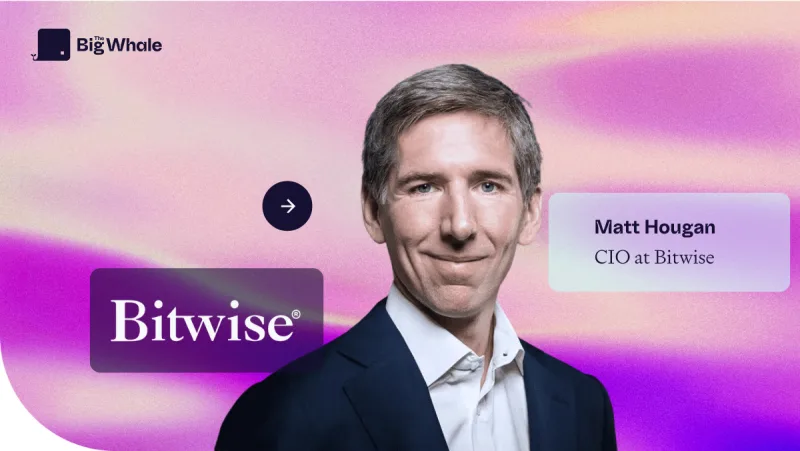TBW - Alexandre Laizet (The Blockchain Group): "Bitcoin Treasury Companies will be the financial giants of tomorrow".
"Bitcoin Treasury Companies will be the financial giants of tomorrow".

What are the main instruments available to Bitcoin Treasury Companies to raise funds and buy Bitcoin?
The main instruments are share issues and convertible debt. There are also variants such as preference shares, which are somewhere between a share and a bond: they make it possible to raise funds without granting voting rights, while offering the equivalent of a dividend. However, they remain a secondary option compared with traditional instruments. Equity can be divided into two main categories: private placement, reserved for certain categories of investors, and public offering, open to all. There are also mechanisms such as the allocation of share acquisition rights, which is similar to an airdrop where beneficiaries can buy shares at a set price. In the US, another popular mechanism is the "At The Market" (ATM), which allows a company to sell its shares directly on the market and use the funds raised to buy Bitcoin.
Can you explain how the ATM works and why it is so used by MicroStrategy?
The ATM allows a company to sell its shares directly on the market, raising funds that it can reinvest, for example, in Bitcoin. This mechanism is particularly advantageous for MicroStrategy, which uses these share sales to transform a market capitalisation premium into net asset value in Bitcoin. This reduces the gap between the value of the Bitcoins held and the valuation of the company. The impact of this strategy is twofold: on the one hand, it strengthens the capacity to accumulate Bitcoin without resorting to traditional debt, and on the other, it then allows more convertible debt to be raised because the underlying value increases in terms of the quantity of Bitcoins on the balance sheet. In contrast, other companies such as Metaplanet in Japan or The Blockchain Group in Europe do not have this capability and must use other financial levers to manage their premium.
>> Bitcoin Treasury Companies : An overview of the financial levers available to them
How convertible debt works and why is it strategic?
Convertible debt is a loan that can be repaid by issuing shares rather than paying cash. This makes it possible to buy Bitcoin with the funds raised, while offering investors the possibility of converting their debt into shares if certain conditions are met. MicroStrategy has been using this for several years, betting on Bitcoin's appreciation so that this strategy is always beneficial. A recent innovation by The Blockchain Group has been to allow subscription to this debt directly in Bitcoin, which is a world first for a Bitcoin Treasury Company. In addition, this debt is denominated in Bitcoin, which means that in the event of non-conversion at maturity, the repayment obligation is equivalent to the assets held. The investor therefore takes on the risk of Bitcoin, not the company itself.
Why would an investor accept debt denominated in Bitcoin rather than euros?
Investors who subscribe to this type of deal are generally players who are convinced by Bitcoin and its upward trajectory. They believe that it makes more sense to be exposed to Bitcoin over a five-year period than to retain a risk in euros. Investors in The Blockchain Group's fundraising include Fulgur Ventures, UTXO Management, Adam Back, Ludovic Chechin-Laurans and Tobam, all well-known players in the ecosystem. This type of investment attracts mainly those who believe in Bitcoin as a global store of value asset. By structuring debt denominated in Bitcoin, the company attracts investors aligned with its vision and avoids exposure to the risk of currency devaluation that debt denominated in euros or dollars represents for the investor.
"The Blockchain Group stands out for its innovative approach to Bitcoin-denominated convertible debt"
How do MicroStrategy, Metaplanet and The Blockchain Group stand out from each other?
MicroStrategy pioneered the Bitcoin Treasury Company model and has a dominant position thanks to its privileged access to the US financial markets. Its use of mechanisms such as ATMs and convertible debt enables it to accumulate Bitcoin aggressively, while benefiting from high liquidity. This strategy has enabled it to establish a strong outperformance of its share against Bitcoin, attracting leading institutional investors. Metaplanet, based in Japan, and The Blockchain Group, in Europe, are adopting strategies tailored to their respective regulatory environments and markets. Metaplanet was the best-performing stock globally in 2024, with share acquisition rights programmes that proved highly successful with the Japanese retail market and international investors. The Blockchain Group stands out for its innovative approach to Bitcoin-denominated convertible debt, which has enabled us to reach the global top 30 in a matter of months and outperform our peers over the period.
What is your vision beyond increasing the number of Bitcoins per share?
Our vision goes far beyond simply accumulating Bitcoin. We want to make The Blockchain Group a central player in digital financial markets, integrating Bitcoin into a new architecture of finance. With the rise of tokenised assets and the digitalisation of markets, we believe that Bitcoin will play a key role in the reorganisation of global financial instruments.
What will be the role of Bitcoin Treasury Companies in a tokenised financial market interacting with Bitcoin?
Their role will be a major one. We are already seeing the first initiatives, such as the North American miner Marathon, which is starting to lend out its Bitcoin. Today, this is still a risky practice, because the market is not yet sufficiently mature. Eventually, financial institutions will offer more sophisticated and secure products, but the risk will always exist. Right now, our priority is to raise capital and accumulate Bitcoin. What many people underestimate is the impact of adoption by businesses. Let's take MicroStrategy as an example: if its capitalisation reaches 100 billion today and Bitcoin rises to 1 million dollars, which is still plausible compared to the capitalisation of gold, then the company could exceed 1,000 billion. And if we include future accumulations, over 5 or 10 years, we could see the emergence of a company worth up to 10 trillion dollars. A company of this scale would have almost unlimited capacity to act, including through the issuance of shares to acquire other companies.
What impact could this development have on the adoption of Bitcoin and finance in general?
If, in the next 5 to 10 years, institutional and corporate adoption exceeds 10 to 20%, then Bitcoin could experience mass adoption, similar to that of the Internet. In this scenario, Bitcoin's price growth could slow from 60% per year to 30% or even 20%. But this will not hinder the development of Bitcoin Treasury Companies. On the contrary, they could become the most capitalised companies in the world. And when a company reaches this size, it can pivot and adapt easily to changes in the market. It's a doubly effective strategy: in the short term, it allows for strong recapitalisation, and in the long term, it ensures an optimal position for adapting to the world of tomorrow.
What impact do the US election and Trump's policies have on your strategy?
The US government's decisions are being followed very closely by all institutional and private players. The announcement of the Bitcoin Strategic Reserve in the United States is a strong signal that reinforces confidence in the future of Bitcoin. It is also worth noting that the institutions adopting this strategy are focusing solely on Bitcoin and not on other digital assets. This move by governments to accumulate Bitcoin could be the start of a global trend, with other governments following suit. The Czech Republic and other countries have already expressed interest. This dynamic reinforces the relevance of Bitcoin Treasury Companies, which are positioning themselves as key players in a world where Bitcoin is becoming a benchmark asset.
"The model is based on strict principles: accumulate Bitcoin without selling it and minimising risk"
How are you preparing for bear market cycles?
A prolonged bear market is a risk, but it also represents an opportunity. A company focused on accumulating Bitcoin can use periods of low prices to increase its stock of Bitcoin per share, maximising gains in the recovery phase. The valuation of a Bitcoin Treasury Company is based not only on the number of Bitcoins held, but also on its ability to grow and accumulate. To mitigate the risks, The Blockchain Group has structured its convertible debt over five years, with a flexible conversion period of two years at the end at our hand, in addition to the possibility of conversion over the entire term for the investor. This avoids having to raise funds in a hurry during a bear market. Indeed, the model is based on strict principles: accumulating Bitcoin without selling it and minimising risk.
What is the biggest risk for you and for the Bitcoin Treasury Companies market?
The main risk would be a prolonged collapse in Bitcoin over a five-year period. If Bitcoin were to lose a large part of its value without ever recovering, it would call the whole business model into question. However, the history of Bitcoin shows that it has always experienced growth cycles after correction phases. Another risk relates to the large companies in the sector, in particular the security of Bitcoin custody by large players such as Coinbase and Fidelity, which are extremely well established players to date and therefore manage the bulk of Bitcoin in US ETFs and MicroStrategy. However, as Bitcoin adoption increases, the market becomes less dependent on a few players, and the differentiation between Bitcoin Treasury Companies will be on their ability to grow and generate revenue while controlling their risks.
>> Strategy : Michael Saylor's black scenario
How do you anticipate the risks associated with a rise in shareholders that could intervene in your policy?
We structured our fundraising in such a way as to solidify our shareholder base. Before this operation, the free float represented around 80% of the capital. With the potential conversion of bonds into shares, this share could be reduced to 40-60%, depending on the price of Bitcoin and the investors who enter the capital. This consolidation makes any hostile takeover attempt more difficult. What's more, our strategic investors are aligned with our long-term vision for Bitcoin, such as Adam Back (Blockstream) and Yves Choueifaty (Tobam). These are players who are deeply committed to the ecosystem and who share our strategy of accumulation. By structuring our shareholding in this way, we reduce the risk of an external player trying to alter our trajectory or deviate from our strategy.
Is there room for several Bitcoin Treasury Companies in Europe?
It is in our interest to be the first Bitcoin Treasury Company in Europe, but the emergence of new players is also in our interest as it contributes to the adoption of Bitcoin and strengthens the market as a whole. That said, launching a successful Bitcoin Treasury Company requires a deep understanding of Bitcoin, expertise in financial engineering and a solid network of investors aligned with this vision. The barriers to entry are therefore high, which explains why we have seen the emergence of MicroStrategy in the US, Metaplanet in Japan and The Blockchain Group in Europe. Each player has to strike a balance between Bitcoin accumulation, risk management and structuring its capital to maximise growth in the number of Bitcoins per share while protecting its model from short-term market fluctuations.
>> GameStop in turn becomes a "Bitcoin Company"



